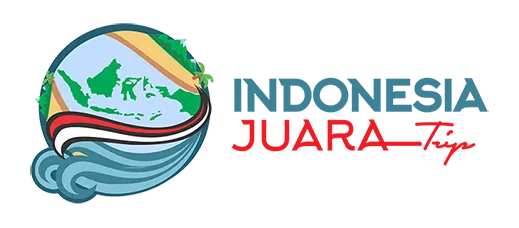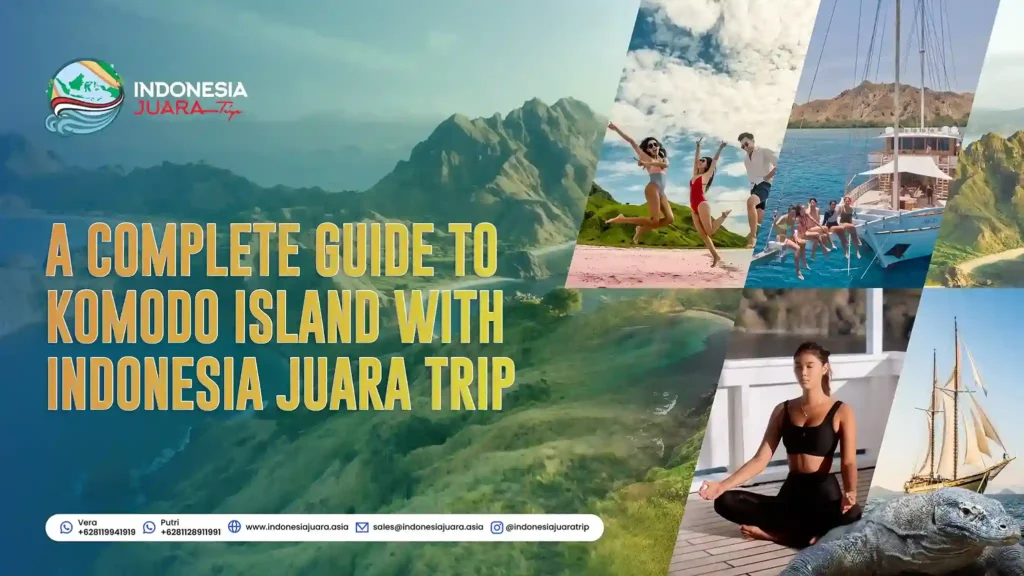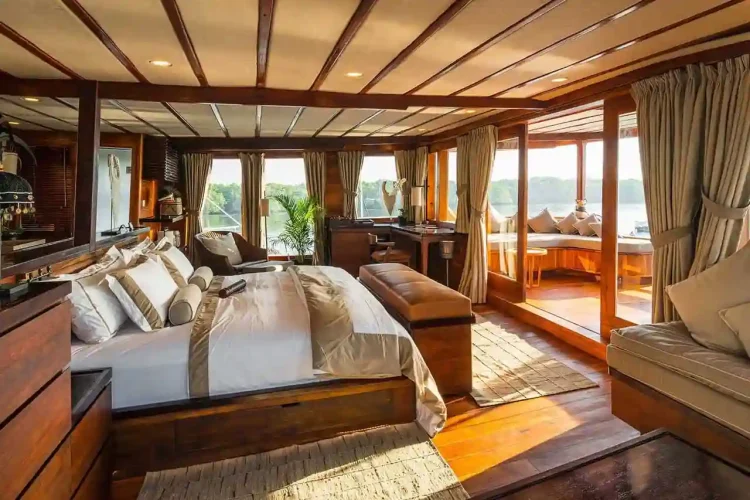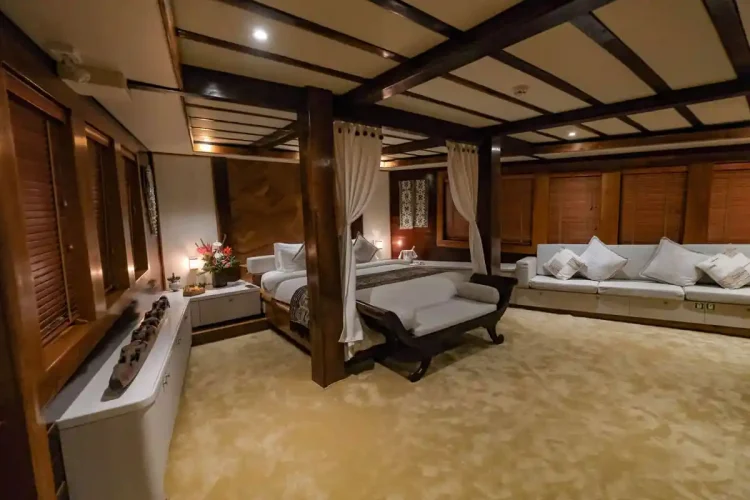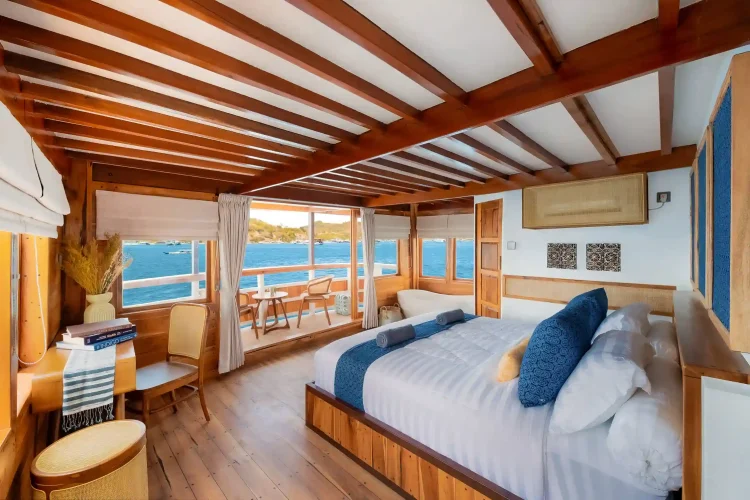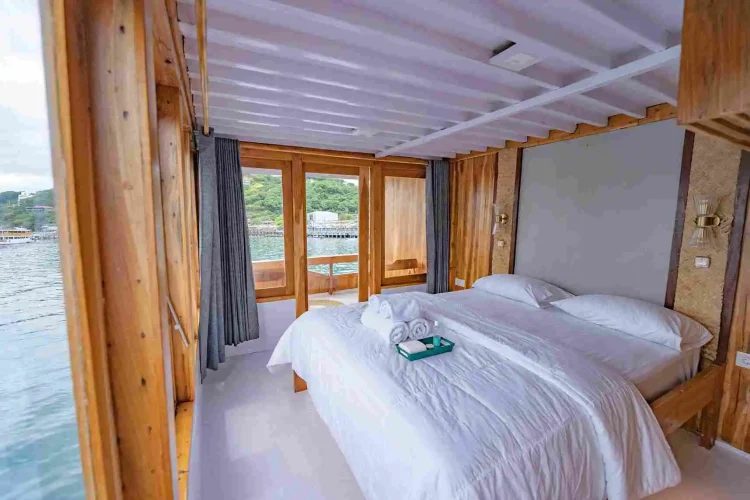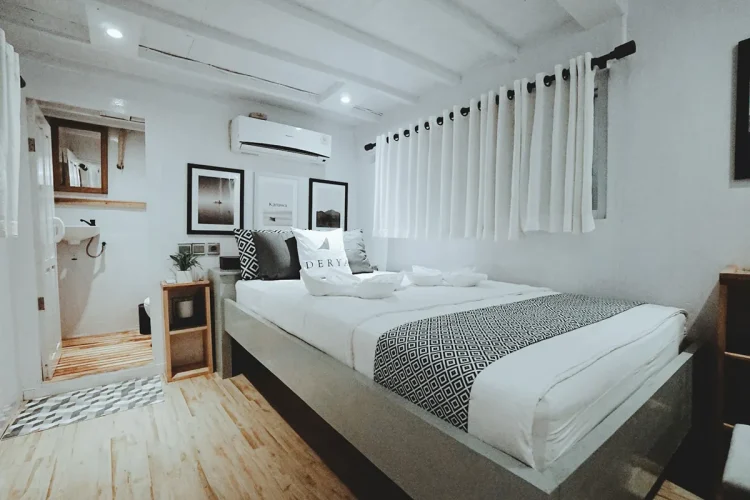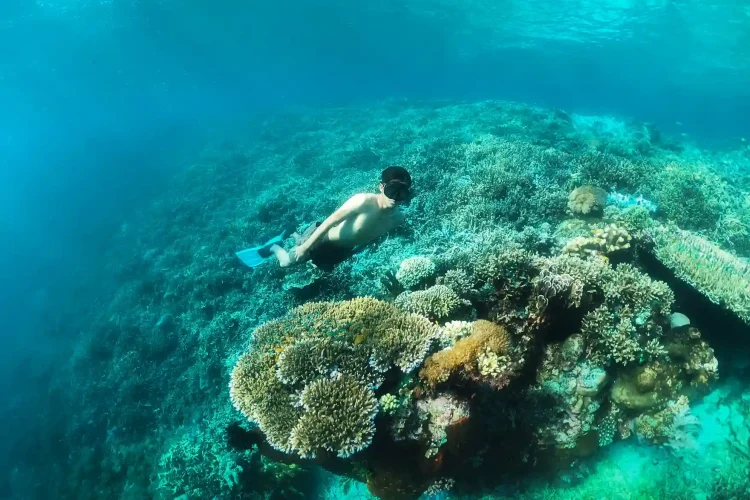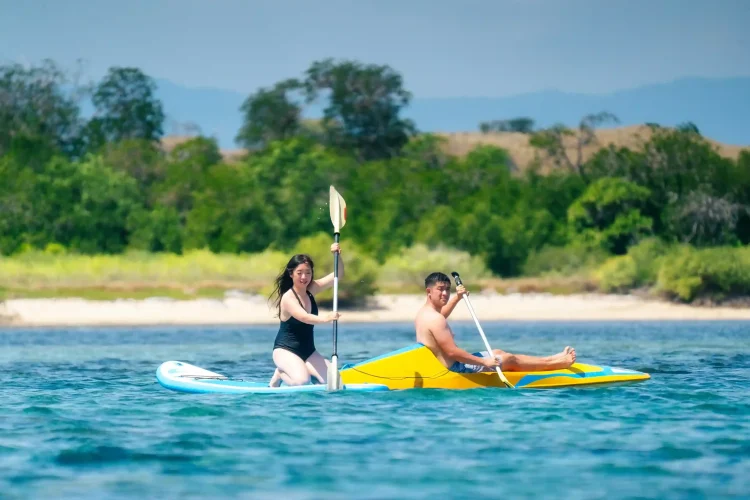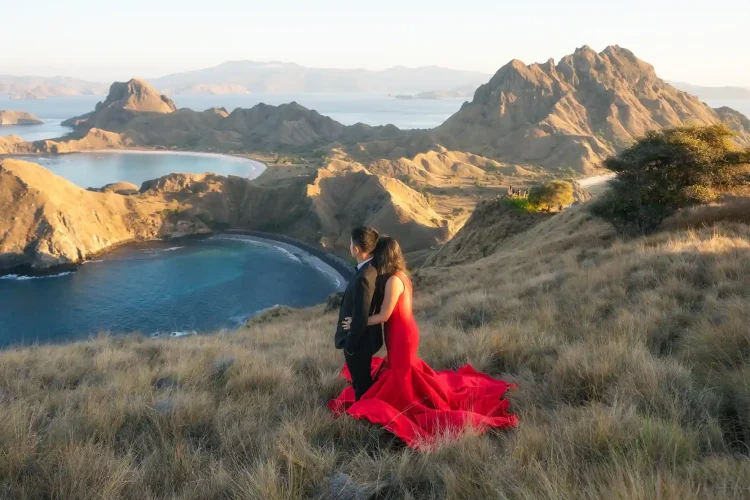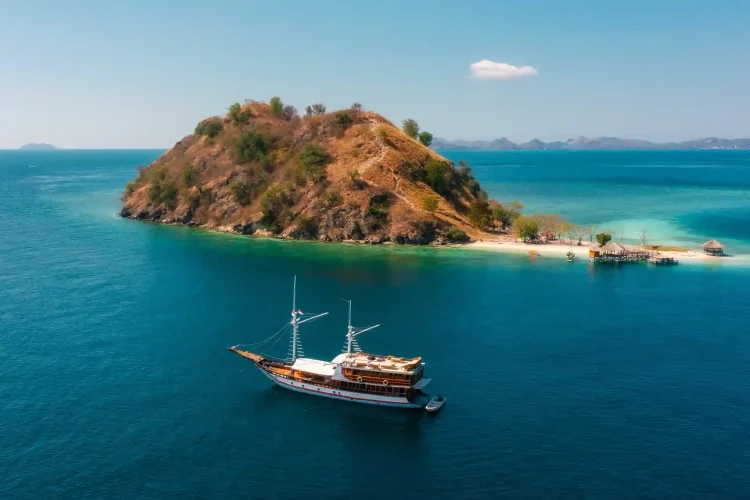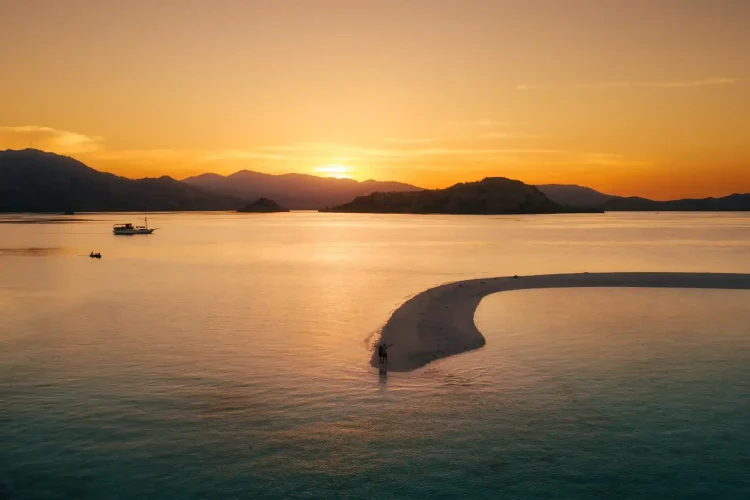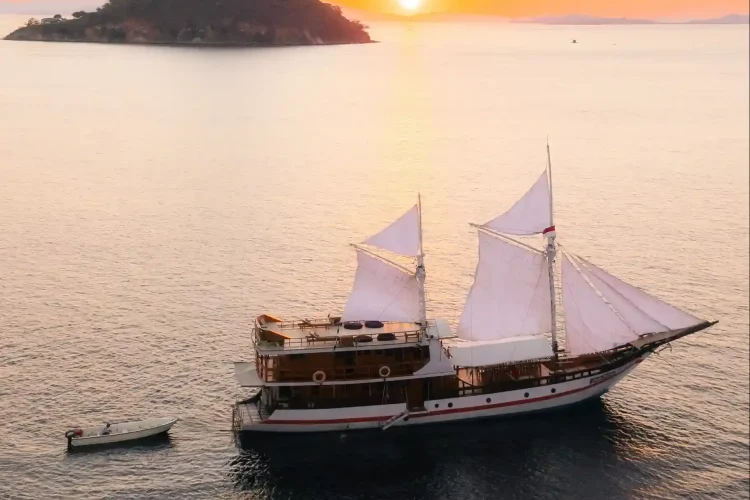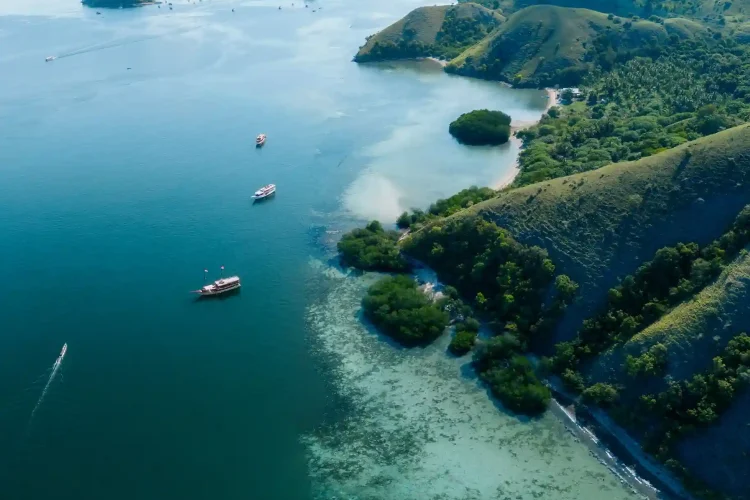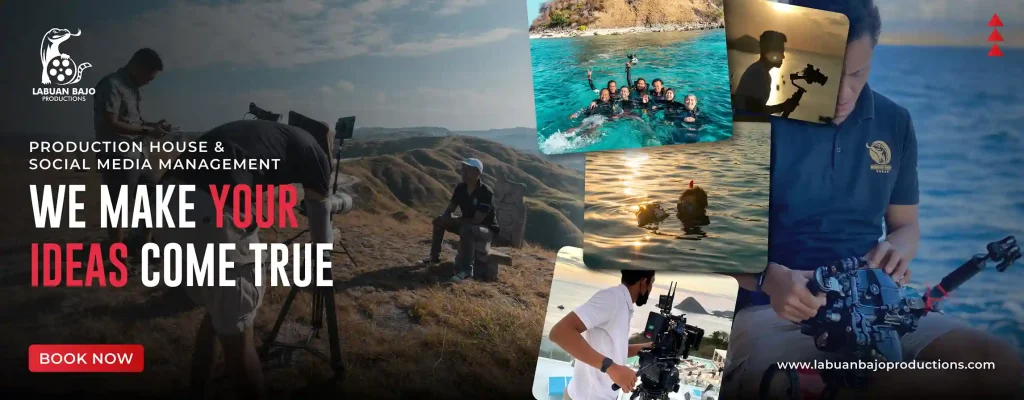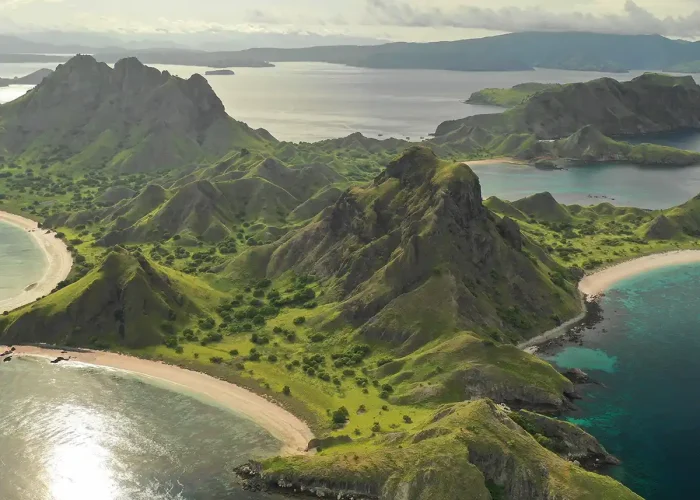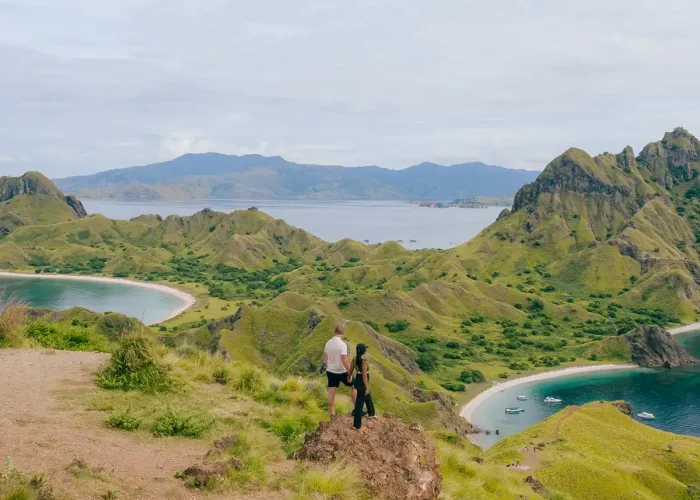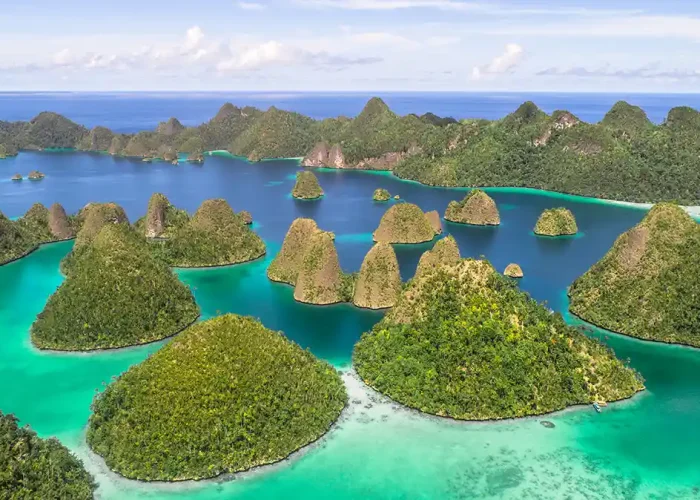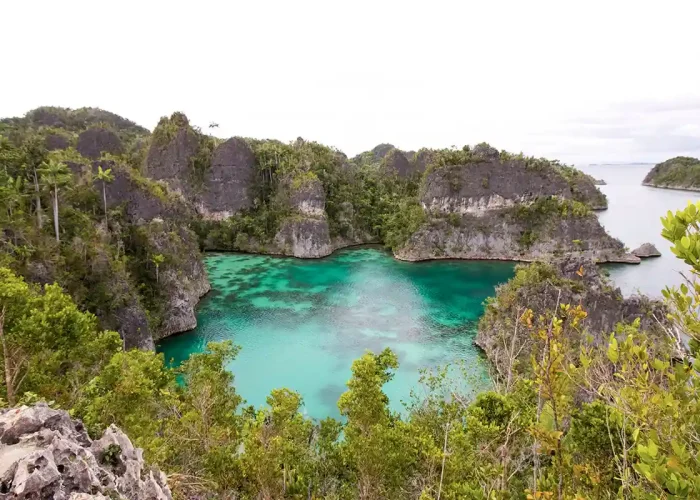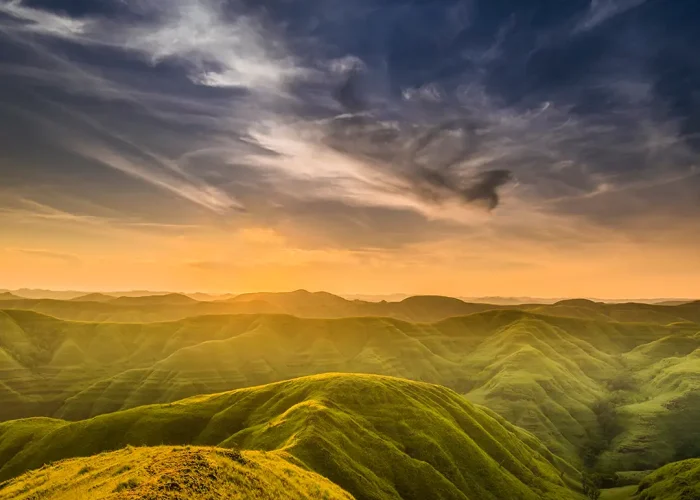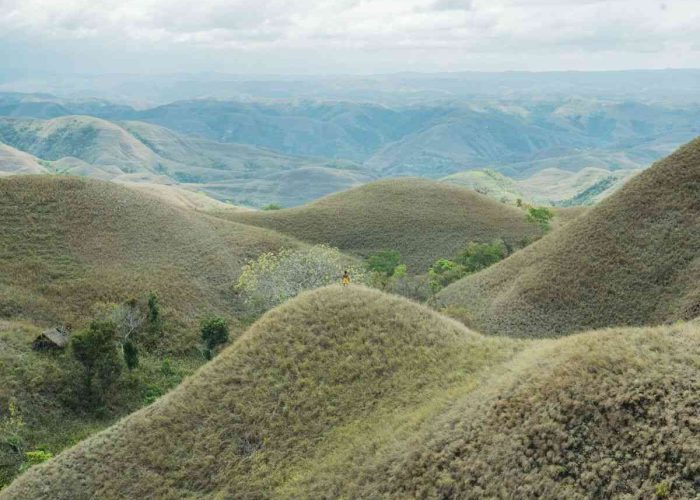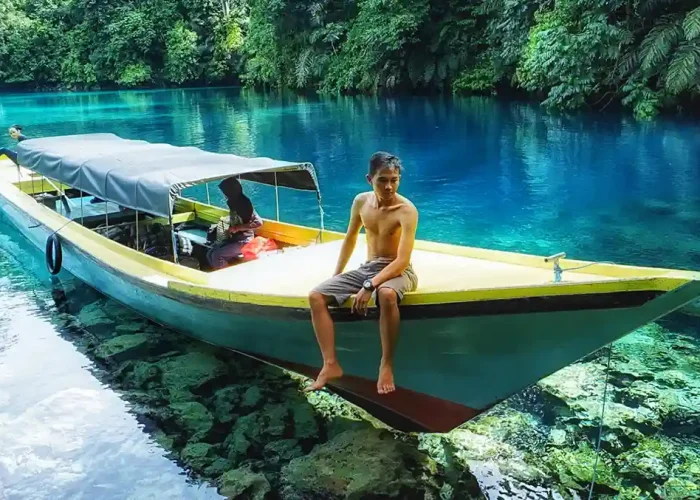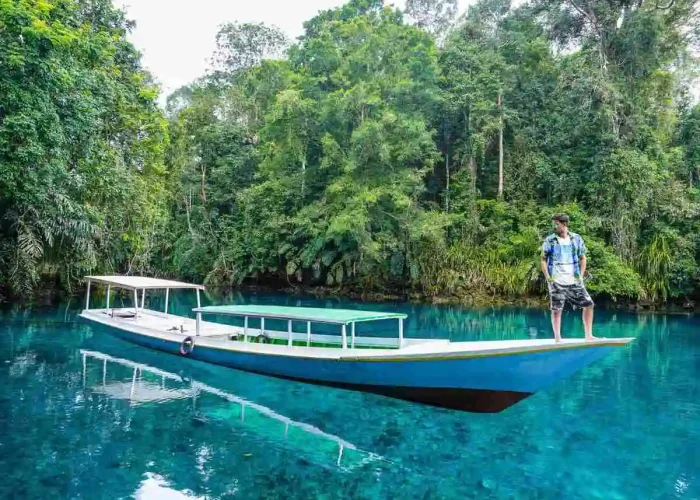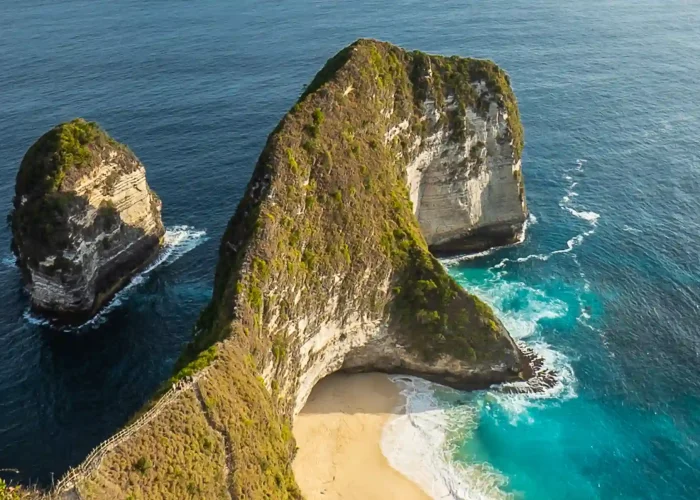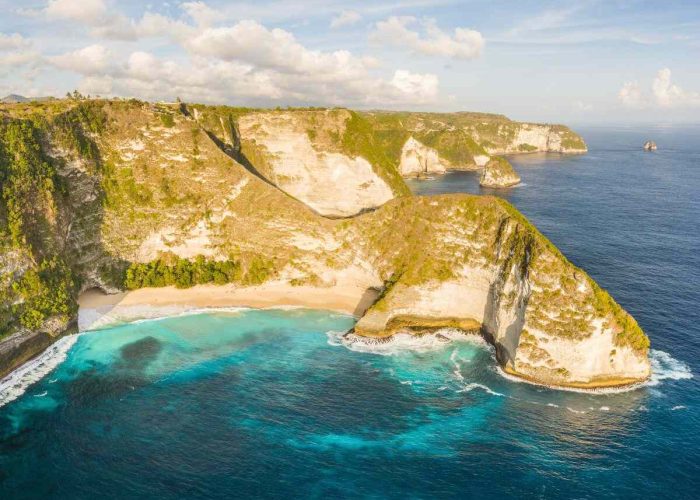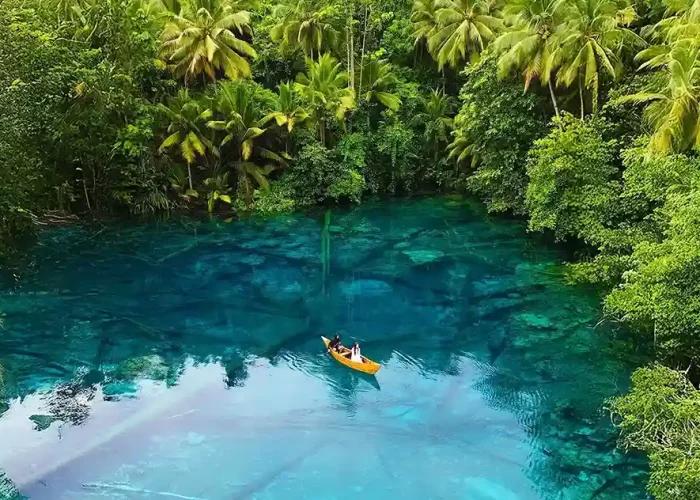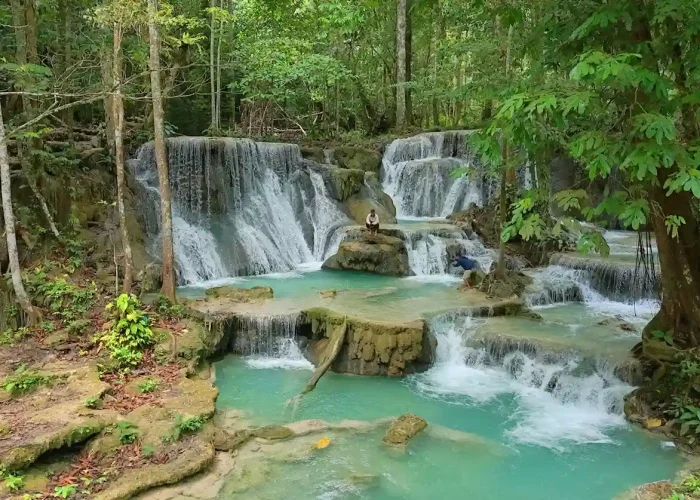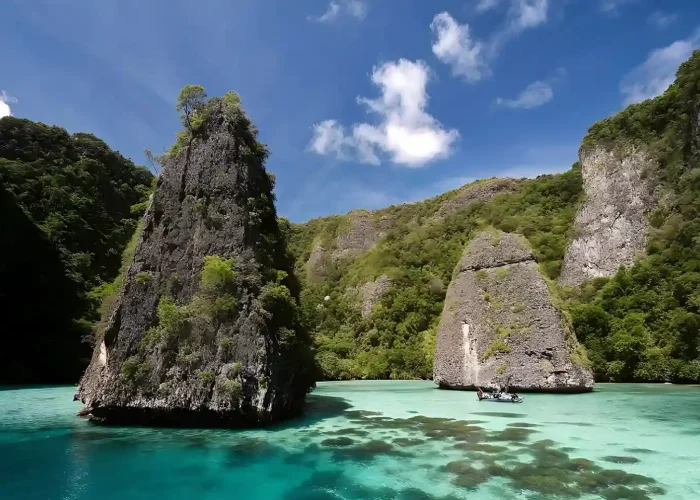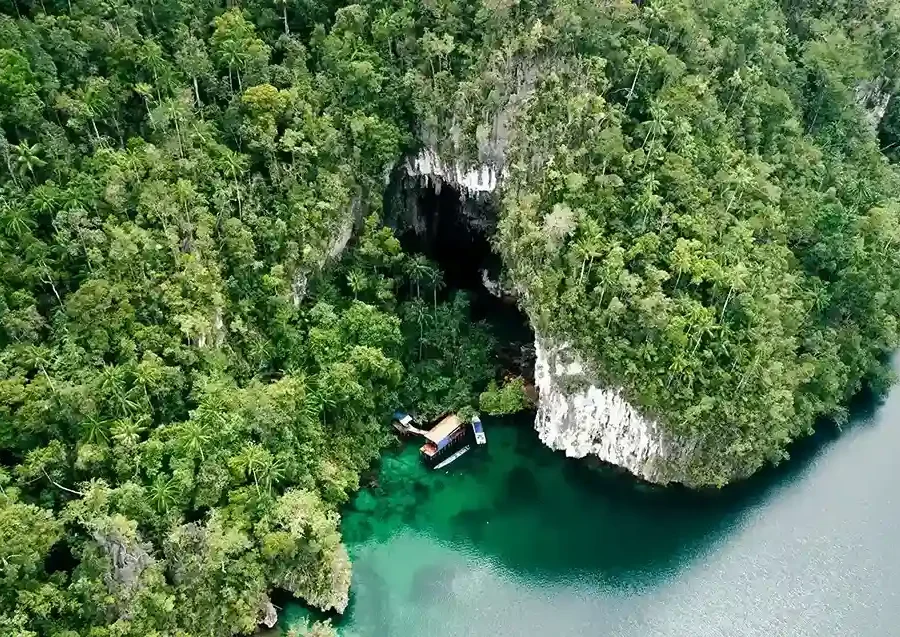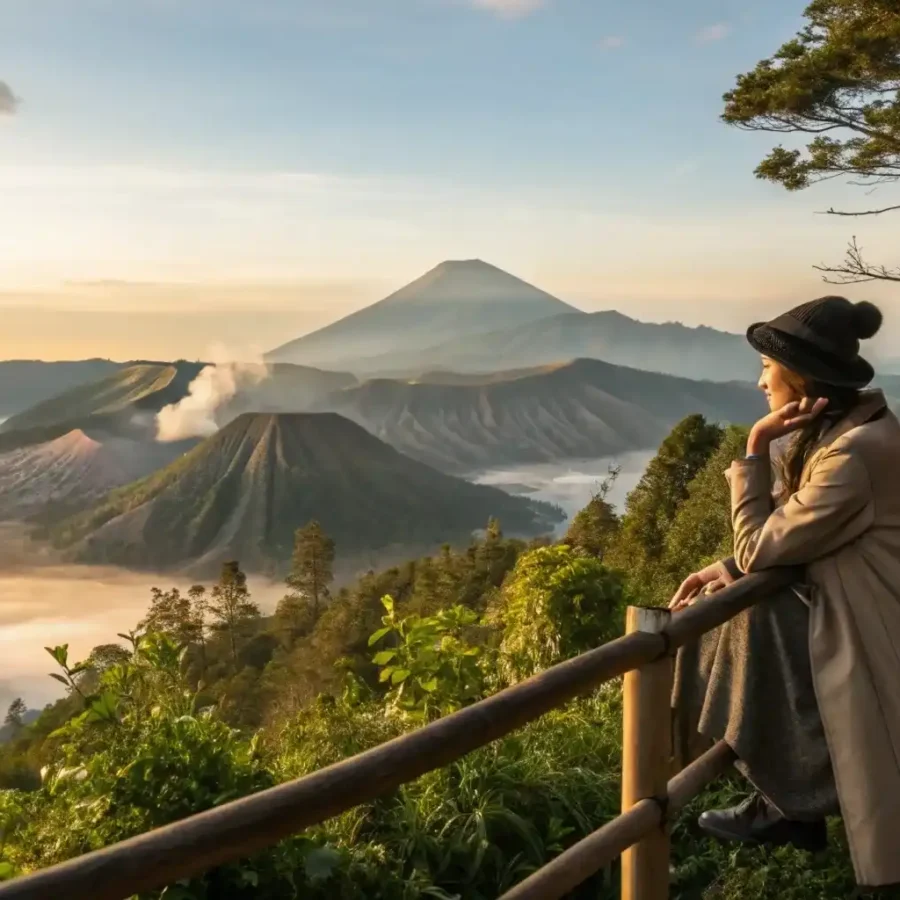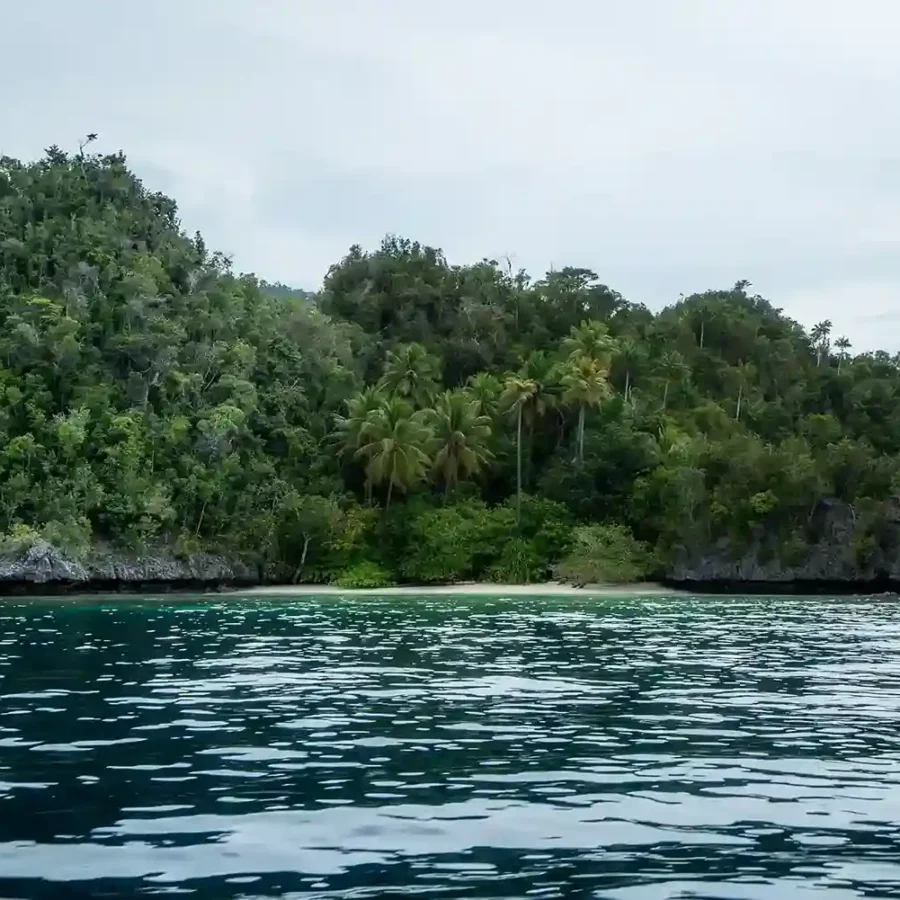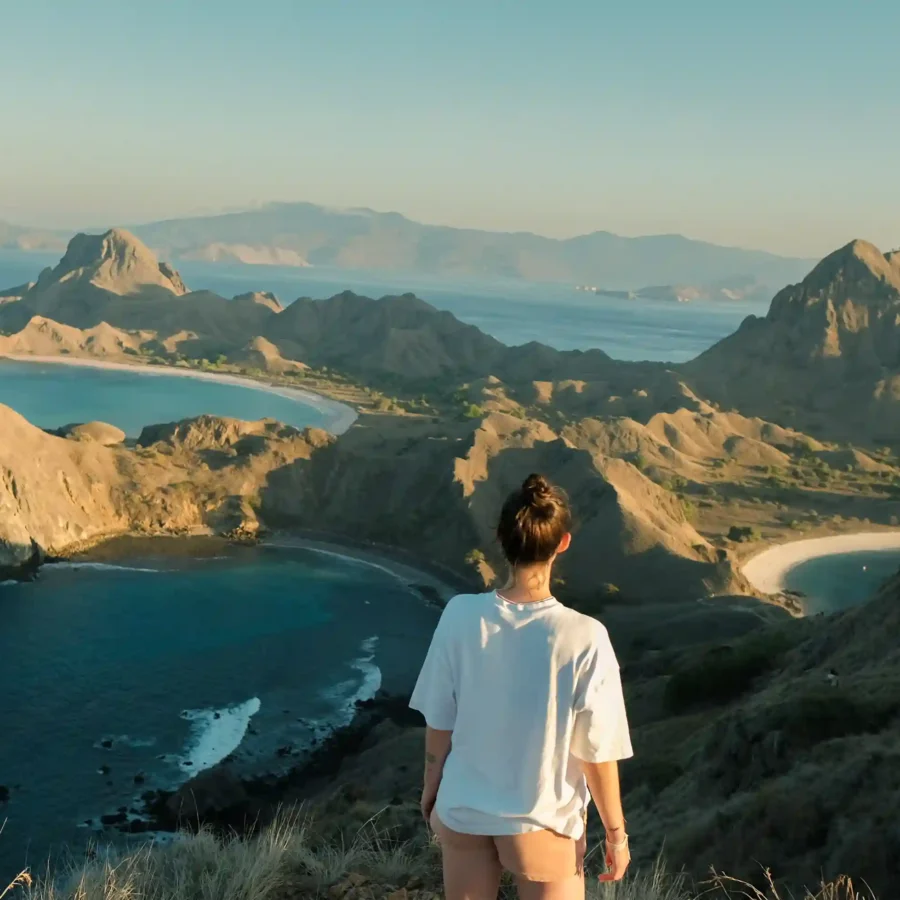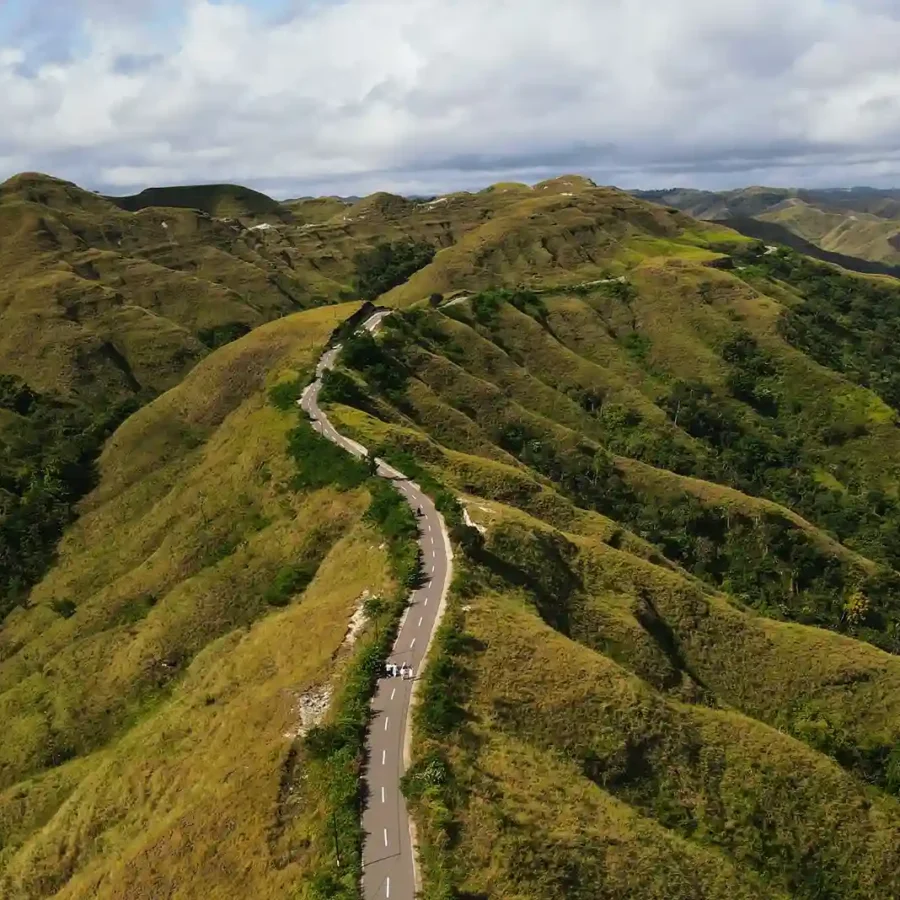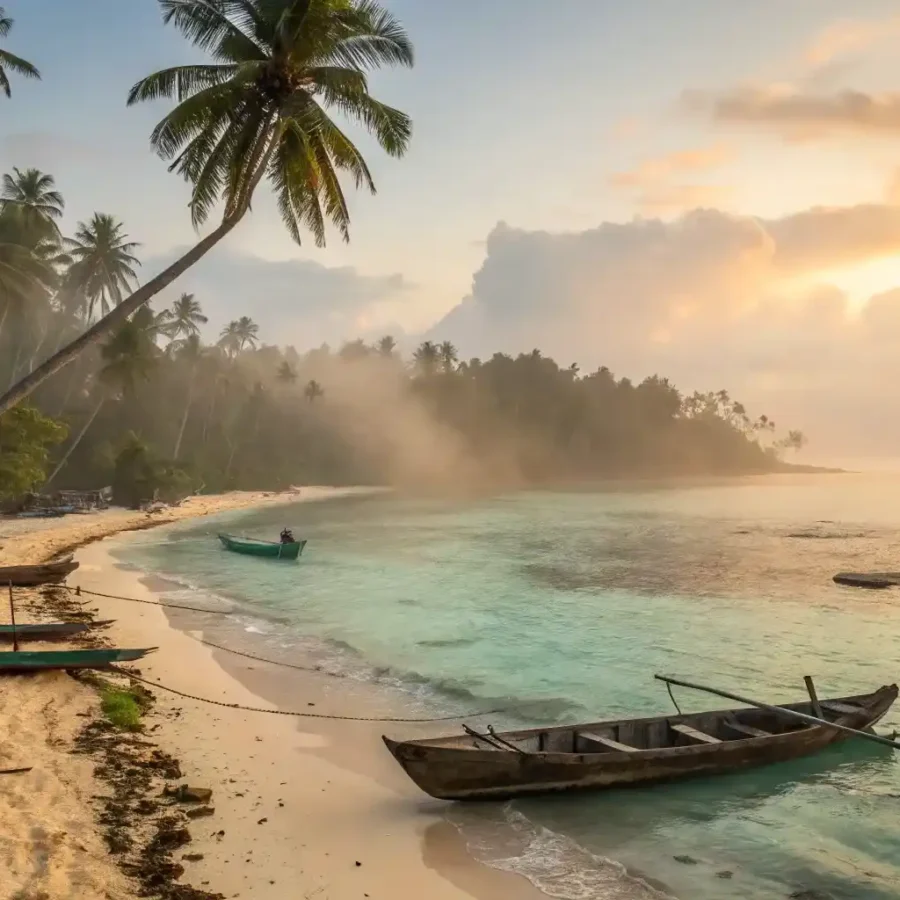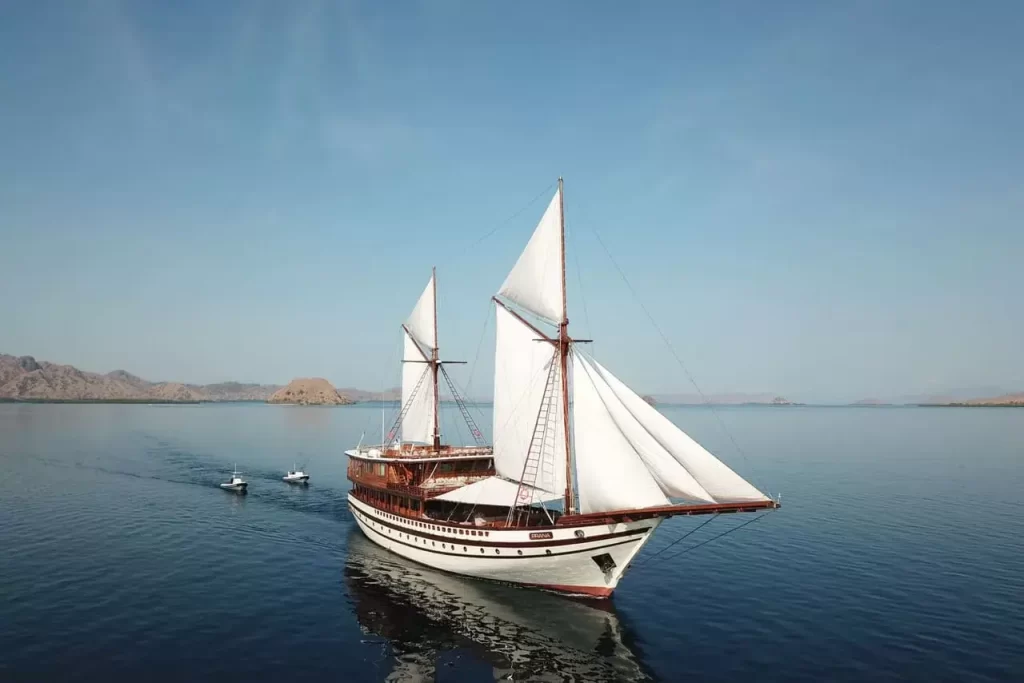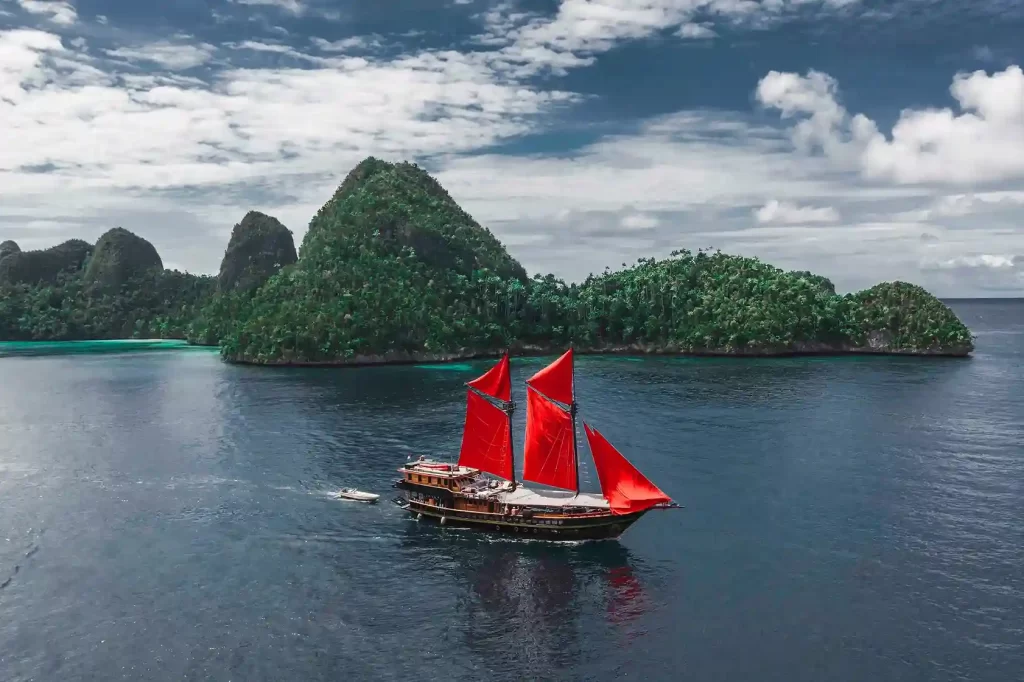A trip to Komodo National Park requires extensive preparation due to its challenging accessibility. In addition to seeing the world’s largest reptile, the Komodo dragon, you can sail on a luxury boat and enjoy its natural beauty. We have compiled all the important information you need before visiting Komodo Island in this guide. With IndonesiaJuara, you can make the most of your trip, be comfortable, and have a great holiday experience.
Table of Contents
Preparing for Your Trip: Key Information
Before starting your journey with IndonesiaJuara, here are some important details:
Does the trip include tickets, rangers, and local guides?
Entry fees to Komodo National Park are not included in the IndonesiaJuara trip package. Entrance fees (updated April 2025) must be paid as follows:
- IDR 400,000/person for Indonesian citizens.
- IDR 700,000/person for foreigners.
- Children 0-2 years old are free
- Children >2 years old must pay in full
- Drone flight permit fee IDR 2,100,000.
Please note! Drones are prohibited from flying around Kalong Island and Rinca Island due to concerns that they may disturb the local wildlife in these areas.
This fee includes a ranger who will accompany you on Komodo Island or Rinca, as well as the entrance fee to the destinations you’ll visit. The IndonesiaJuara team also provides a local tour guide with over nine years of experience and extensive knowledge of the area, ensuring you have an expert companion while exploring the beauty of Komodo National Park.
When to Arrive in Labuan Bajo
We recommend arriving in Labuan Bajo one day before your trip to avoid any delays caused by flight issues or other unforeseen circumstances. For Open Trip travelers joining other guests, punctuality is crucial to prevent delays that could impact the entire group.
If you are joining an Open Trip package and plan to arrive on the same day as the trip, make sure you arrive at Komodo Airport by 09:10 WITA, as the pick-up time is between 09:30 and 10:30 WITA. Any cancellations or delays will be the guest’s responsibility.
For those joining a private trip, you can set your check-in time according to your preference. However, it’s advisable not to arrive too late in the afternoon, as this might limit your time to visit the sites. Ideally, you should arrive by 14:00 WITA.
Pick-Up and Meeting Point
The meeting point and pick-up are in the Labuan Bajo area. Our team will collect you from the airport or your hotel in a private car and transfer you to KP3 Harbour, Labuan Bajo, where your journey to explore Komodo National Park will begin. This ensures your safety and protects you from potential scams that may occur if you visit the park without a tour operator.
Before Departure: Preparations
A visit to Komodo National Park involves a variety of physical activities, such as trekking on Padar Island, swimming at Pink Beach, snorkeling, and diving on Kanawa Island. Therefore, it is essential to prepare the following:
Check Your Physical Health
Activities at Komodo National Park require good physical health. Ensure you are healthy, especially if you are elderly or have pre-existing conditions such as heart disease, asthma, diabetes, GERD, rheumatism, or respiratory infections. Participation in strenuous activities like trekking or diving is not recommended for the elderly. If you have any medical conditions or food allergies, inform the sales office when booking so the guide can accommodate your needs. Travelers over 60 should only join if their physical condition permits, and they should be accompanied by a family member or companion.
Physical Exercise
Engage in regular exercise, such as jogging or swimming, at least a week before your trip to Komodo National Park. This will ensure your body is in good condition and you have the necessary fitness level for light to strenuous physical activities.
Onboard Experience: What to Expect
A holiday to Komodo National Park will be an unforgettable experience, offering the chance to sail and stay on a luxury boat while exploring its natural beauty. Here are the amenities you can expect during the cruise.
Cabin
Enjoy a unique holiday experience by staying in a luxury cabin. Most cabins are fully equipped with beds, blankets, wardrobes, Wi-Fi, air conditioning (AC), and private bathrooms. If you’re a backpacker on an open trip package, you can request a room when booking, subject to availability and conditions.
Food and Beverages
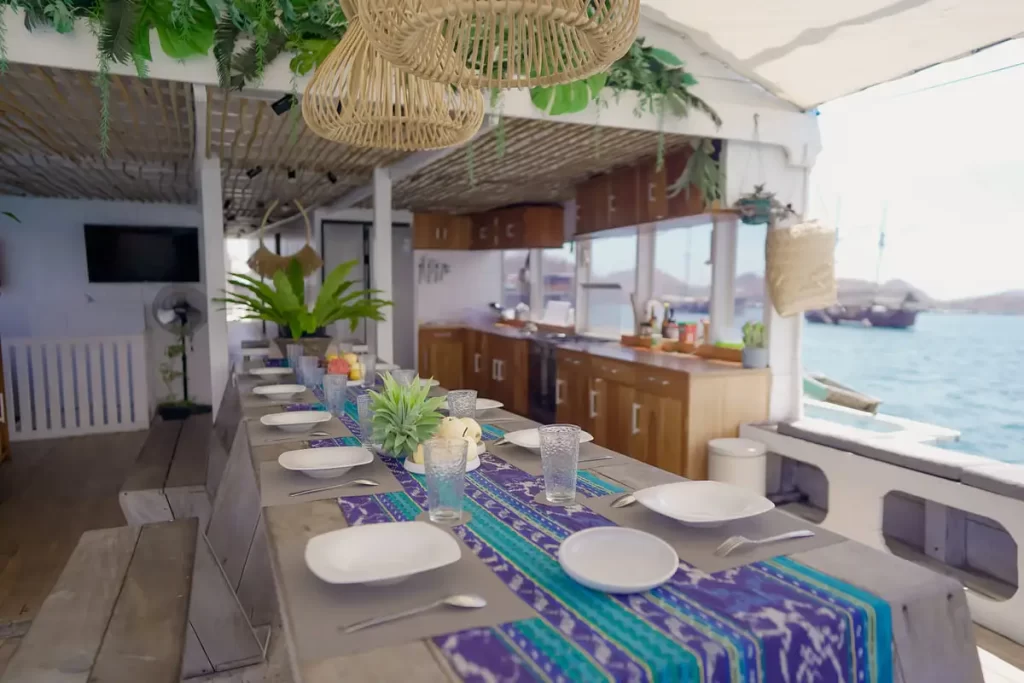
Professional chefs will prepare your meals during the trip. The onboard menu includes a variety of options such as chicken, fish, meat, tofu, tempeh, vegetables, and fruits. Drinks include mineral water, coffee, and tea. You are welcome to bring your own alcohol if you wish.
Note: If you have any food allergies, please inform the sales admin during booking to arrange customized meals. The food and beverage menu may vary depending on the type of boat you choose.
Toiletries
Toiletries such as shampoo, soap, and towels are provided. If you prefer your own products, you are welcome to bring them, ideally eco-friendly ones. It’s also a good idea to bring an extra towel, as activities in Komodo National Park are water-intensive, and you might need a dry one.
Snorkeling and Diving Equipment
Basic snorkeling and diving equipment are available on each boat. However, you are welcome to bring your own mask and gear for hygiene and comfort. If you’re traveling with children, you can request child-sized snorkeling and diving equipment when booking.
Documentation
We provide unedited documentation for each 3-day, 2-night sailing trip on Komodo Island. This includes recordings and photos taken during the trip, which we may use for promotional purposes on social media. If you do not wish to be featured, please inform the guide during the trip. Drones, cameras, and GoPros are typically used for this documentation. Tourists are advised to bring a hard drive with a capacity of 15-35 GB to store RAW format documentation files. For professional-quality documentation, you can use the services of Labuan Bajo Production.
Important Information While Onboard
Signal Availability
Some mobile providers may have intermittent signals, but Telkomsel users are likely to have a stable connection.
WiFi Access
WiFi is available on certain ships, primarily for VIP and VVIP guests. The admin can confirm WiFi availability on your chosen boat when you book.
Electricity
There is 24-hour electricity on board, allowing you to charge electronic devices like mobile phones and cameras.
Air Conditioning
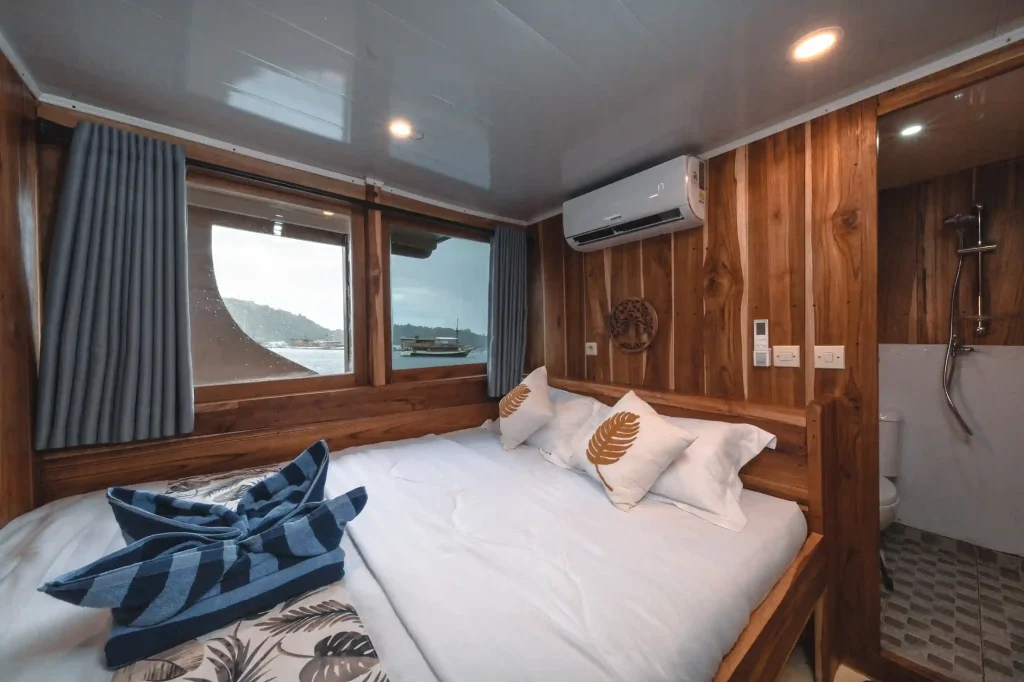
All boat classes have air conditioning in each cabin.
Engine Noise
The sound of the ship’s engine may be heard while sailing, depending on your cabin’s location. However, the engine will be turned off at night when the ship is anchored, ensuring a peaceful sleep. For added comfort, consider bringing a headset or earplugs.
Security for Valuables
It is safe to carry cash in the cabin. If you leave valuables or cash in the cabin, please lock the room when you go out to ensure their safety. Not all ships are equipped with CCTV, so make sure to lock your cabin.
What to Do in Case of an Emergency
Medical Emergency
First aid kits are available on board, but we strongly advise each traveler to bring their own medication. Inform the guide or admin if you have a history of certain diseases to avoid strenuous activities. In severe cases, we will use a speedboat to take you back to Labuan Bajo or Flores Island, where you will be transferred to the nearest health center.
Bad Weather or Rough Seas
If bad weather is expected before the trip, and the Harbourmaster issues a warning not to sail, the trip will be rescheduled, but no refunds will be provided. The rescheduling is valid for one year from the time the trip is postponed. During the trip, if bad weather or large waves occur, the route will be modified, or a safe place will be found for sailing.
Boat Breakdown
If the boat breaks down before the trip starts, we will replace it with a similar type or class of boat. If this occurs during the trip, we will use a speedboat to reach the destination while repairs are made. If the damage is severe, we will continue the trip with a replacement boat.
Essential Items to Bring to Komodo National Park
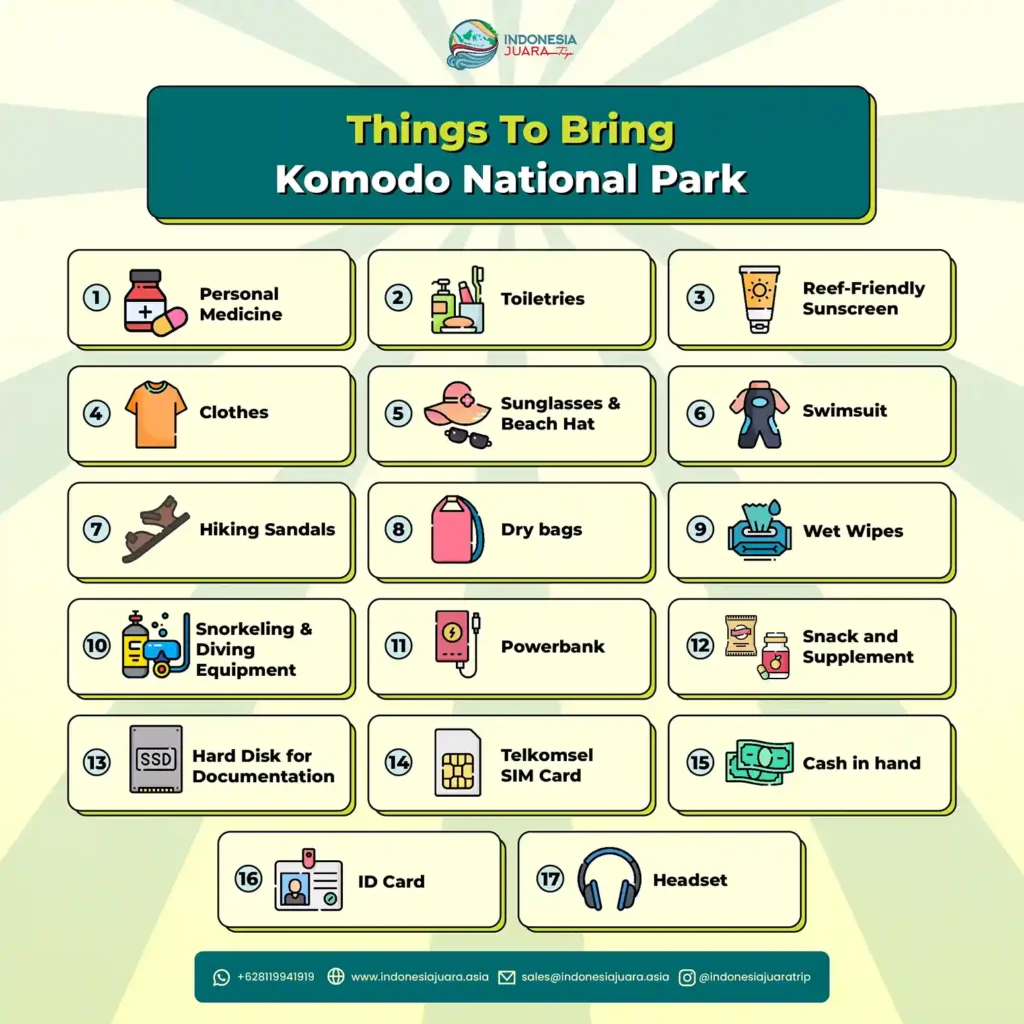
1. Identification
Bring your KTP, passport, SIM, or ID card to verify your details as a safety precaution. If your name is not registered, or you do not have an ID, you cannot join the trip. Copies of IDs will be removed after you are cleared to sail.
2. Personal Medicine
Bring personal medications, especially if you have allergies or medical conditions. Inform us of any medical history so we can prepare accordingly.
3. Toiletries
Bring your preferred toiletries such as shampoo, soap, toothbrush, toothpaste, facial cleanser, deodorant, and sanitary pads. Although the boat provides shampoo, soap, and towels, you may prefer to bring your own eco-friendly products.
4. Reef-Friendly Sunscreen
Protect your skin with reef-friendly sunscreen. Choose a product with at least SPF 30 PA+++ that is free of oxybenzone or octinoxate to prevent coral reef damage.
5. Clothing
Bring sweat-wicking clothes made from cool fabrics like cotton, rayon, linen, or jersey. Avoid black clothes that absorb heat. Pack enough clothes for physical activities and water-intensive experiences.
6. Sunglasses and Hat
Protect your eyes and head from the sun with sunglasses and a beach hat.
7. Swimsuit
Don’t forget your swimsuit to enjoy the beautiful beaches and clear waters.
8. Hiking Sandals or Shoes
Wear comfortable trekking sandals or shoes for activities on Padar Island and other trails. Flip-flops are not allowed.
9. Headset or Earplugs
Bring a headset or earplugs to block out engine noise while sailing.
10. Dry Bags
Use dry bags to protect your belongings from seawater splashes, especially during speedboat rides to various destinations.
11. Wet Wipes
Wet wipes are essential for maintaining hygiene, especially after physical activities.
12. Snorkeling and Diving Equipment
IndonesiaJuara provides basic snorkeling and diving equipment. You are welcome to bring your own equipment to enhance hygiene and convenience
13. Powerbank
Keep your devices charged with a powerbank while not on board
14. Snack and Supplements
Since there are no supermarkets in Komodo National Park, bring enough snacks and supplements.
15. Hard Drive for Documentation
Bring a hard drive or flash drive to store documentation files with a size about 15-35 GB. The soft file will be delivered to you usually at the end of the trip.
16. Telkomsel SIM Card
Telkomsel provides the best network coverage in Komodo National Park. You can purchase a SIM card at the airport or Labuan Bajo pier.
17. Cash
There are no ATMs or money changers in Komodo National Park, so bring enough cash for entrance fees, personal expenses, and souvenirs.
Entrance Fees (as of April 2025):
- IDR 400,000/person for Indonesian citizens
- IDR 700,000/person for foreigners
- Children above 2 years must pay full price
- The drone permit fee is approximately IDR 2,100,000 per unit per day (keep in mind that drones are not allowed in Rinca and Kalong Island due to concerns that they may disturb the local wildlife in these areas)
Komodo National Park Regulations 2025
Komodo National Park is a conservation area dedicated to preserving the Komodo dragons and their habitat. With the increasing number of visitors, the park authorities have enforced strict rules to minimize environmental impact and maintain the natural beauty of the park. Here are the guidelines every tourist must follow:
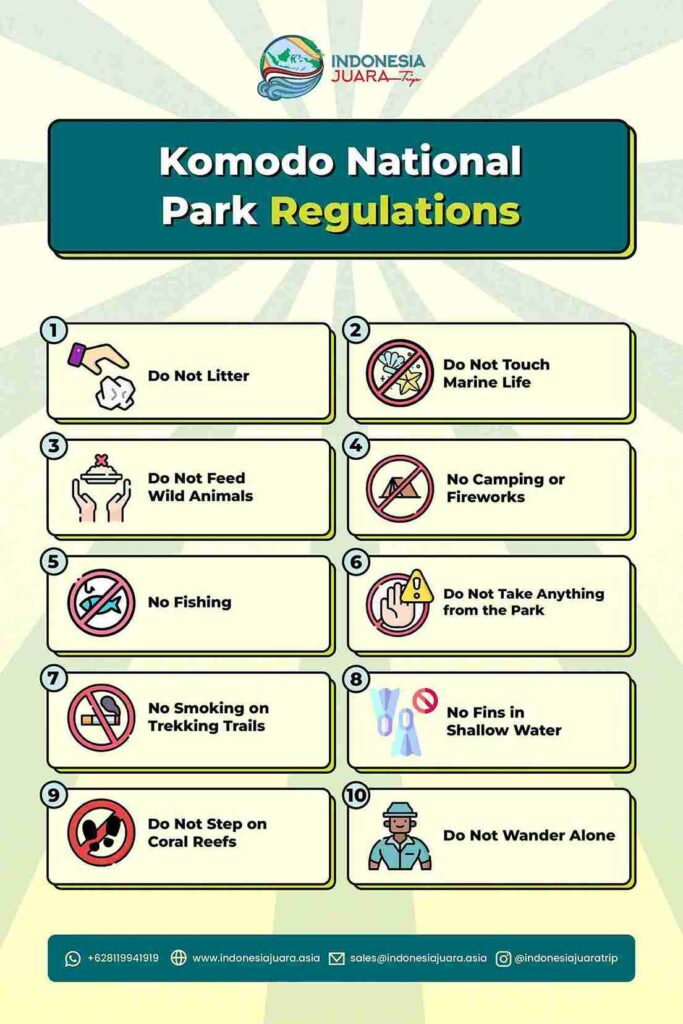
1. Do Not Litter
Keep Komodo National Park clean by refraining from littering. Since there are no trash bins on the islands, visitors should bring their trash back to the boat and dispose of it properly.
2. Do Not Touch Marine Life
Komodo National Park is home to diverse marine life, including coral reefs and numerous fish species. To protect these habitats, visitors must adhere to a strict no-touch policy. Touching marine life can cause stress, injury, or even death.
3. Do Not Feed Wild Animals
Feeding wild animals, including Komodo dragons, horses, deer, and wild boars, is prohibited. This rule prevents altering their natural hunting behaviors and habitat.
4. No Camping or Fireworks
Camping, lighting campfires, and setting off fireworks are strictly prohibited to protect the tranquility and safety of the wildlife habitats, including those of the Komodo dragons. These activities can disturb wildlife, causing stress and behavioral changes.
5. No Fishing
The ban of fishing in Komodo National Park is essential to preserve the balance of the marine ecosystem and protect endangered species. This policy helps preserve the marine life populations and prevent ecosystem damage caused by fishing activities.
6. Do Not Take Anything from the Park
Taking anything from Komodo National Park, including sand, corals, plants, or animals, without written permission from the Head of the Park, is illegal. This rule protects the habitat and conservation efforts. Violators may face fines and imprisonment.
7. No Smoking on Trekking Trails
Smoking is banned on trekking trails to maintain air quality and prevent forest fires caused by cigarette ash. Littering cigarette butts can also pollute the environment and harm wildlife.
8. No Fins in Shallow Water
Snorkelers are advised to refrain from wearing fins in shallow water areas such as Kanawa and Manjarite Islands in order to safeguard fish and coral reefs. Fins can cause physical damage to these delicate ecosystems. Fins are only permitted for experienced snorkelers.
9. Do Not Step on Coral Reefs
Coral reefs are essential for maintaining marine life balance and are highly sensitive. Touching or stepping on coral reefs can severely damage their structure and disrupt the ecosystem. Visitors should avoid stepping on coral reefs during underwater activities.
10. Do Not Wander Alone
Visitors must be accompanied by a guide or ranger while exploring the park. This ensures safety, provides an informative experience, and helps conserve the environment. Guides educate tourists about environmental ethics and park rules and have in-depth knowledge of wildlife behavior, including that of the dangerous Komodo dragons.
Conclusion
This comprehensive guide by IndonesiaJuara Trip outlines the regulations of Komodo National Park and provides tips for preparing for your trip. It emphasizes responsible tourism and the protection of the park’s unique ecosystem, home to the iconic Komodo dragon and other endangered species.
Visitors need to remain on designated paths to avoid disturbing wildlife, and to dispose of trash properly. By following these regulations, tourists can contribute to the preservation and sustainability of Komodo National Park. This guide serves as a valuable resource for planning a trip to Komodo National Park, highlighting essential rules to ensure a harmonious and responsible visit.
Those interested in exploring more of Indonesia’s stunning destinations should consider visiting others such as Sumba, Nusa Penida, Derawan, and Raja Ampat. Learn more and getting know more by following our Instagram @IndonesiaJuaraTrip
FAQs
Is this Trip Safe for Parents?
Parents can safely join this trip, but it's important to note that it involves a lot of physical activities such as trekking, snorkeling, and diving. Parents should ensure they are in good physical health and should not push themselves to participate in strenuous activities if they are not comfortable.
Can the Trip Be Canceled?
In case tourists cancel the trip, any payments made are non-refundable. However, tourists have the option to transfer the trip or reschedule it. Additionally, tourists can find a replacement (change of name) for their spot.
If the trip is canceled due to Force Majeure (natural disasters, bad weather, riots, epidemics, government regulations, or other unavoidable circumstances), the trip can be changed or canceled. In such cases, there will be no refunds for any unused facilities or any inconvenience caused to the organizer.
If travelers arrive late to the meeting point or extend the itinerary beyond the scheduled time, causing inconvenience to others, we consider the late traveler to have resigned, and no refund will be provided.
Can guests request a room for the open trip package?
Open trip travelers can request a room when booking to the sales admin, but it will still be adjusted to the condition and availability of the room.
Are there mosquitoes in Labuan Bajo?
There are no mosquitoes in the sea, but there are mosquitoes around the pier and in Labuan Bajo.
Is there a supermarket in Komodo National Park?
There are no supermarkets or minimarkets in the Komodo National Park area. However, there are hawkers or small stalls in some tourist destinations such as Komodo Island, Kelor Island, and Pink Beach.
Is this Trip Safe for Parents?
Parents can safely join this trip, but it's important to note that it involves a lot of physical activities such as trekking, snorkeling, and diving. Parents should ensure they are in good physical health and should not push themselves to participate in strenuous activities if they are not comfortable.
Can the Trip Be Canceled?
In case tourists cancel the trip, any payments made are non-refundable. However, tourists have the option to transfer the trip or reschedule it. Additionally, tourists can find a replacement (change of name) for their spot.
If the trip is canceled due to Force Majeure (natural disasters, bad weather, riots, epidemics, government regulations, or other unavoidable circumstances), the trip can be changed or canceled. In such cases, there will be no refunds for any unused facilities or any inconvenience caused to the organizer.
If travelers arrive late to the meeting point or extend the itinerary beyond the scheduled time, causing inconvenience to others, we consider the late traveler to have resigned, and no refund will be provided.
Can guests request a room for the open trip package?
Open trip travelers can request a room when booking to the sales admin, but it will still be adjusted to the condition and availability of the room.
Are there mosquitoes in Labuan Bajo?
There are no mosquitoes in the sea, but there are mosquitoes around the pier and in Labuan Bajo.
Is there a supermarket in Komodo National Park?
There are no supermarkets or minimarkets in the Komodo National Park area. However, there are hawkers or small stalls in some tourist destinations such as Komodo Island, Kelor Island, and Pink Beach.
